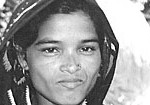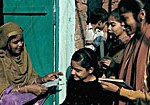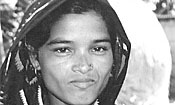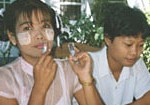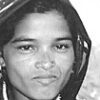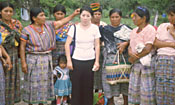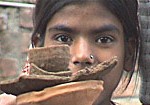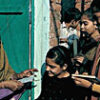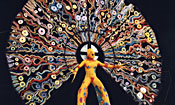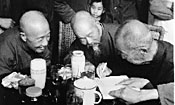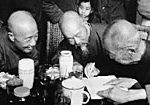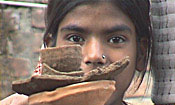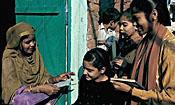Price: $250.00
This intimate, poignant, and thought-provoking documentary relates the remarkable story of an Indian woman, Lalita Bharvani, who completely loses her skin pigment as she migrates from Bombay to Montreal. Now 60 and appearing to be White, Lalita copes with her changing identity even as her body is painfully transformed by ovarian cancer, breast cancer, and heart failure. In telling Lalita’s story, the film incisively explores the intersection of racial, national, age, and gender identities in the globalized world.
Product Description
This intimate, poignant, and thought-provoking documentary relates the remarkable story of an Indian woman, Lalita Bharvani, who completely loses her skin pigment as she migrates from Bombay to Montreal. Now 60 and appearing to be White, Lalita copes with her changing identity even as her body is painfully transformed by ovarian cancer, breast cancer, and heart failure. In telling Lalita’s story, the film incisively explores the intersection of racial, national, age, and gender identities in the globalized world.
As a child in Bombay in the 1950s, Lalita began to develop white patches on her leg, caused by a skin condition called vitiligo (made famous by Michael Jackson). Her mother worried that this “defect” would prevent Lalita from ever finding a good husband. Lalita left India to study in Paris. There she fell in love with Pierre, a French-Canadian student, and they married. After their neighbors mistook Lalita for an Arab and mistreated her, Lalita and Pierre decided to leave Paris and move to Montreal.
Despite a happy marriage, Lalita found life in North America lonely. Her solitude manifested itself physically at age 30 when ovarian cancer left her unable to bear children. Meanwhile, the cold air of Montreal accelerated her pigment loss. Within a year of arriving in Canada, she had become totally White.
Now 60, Lalita is fighting breast cancer and heart disease as her mother lives out her last days in India. Through these health crises, Lalita somehow manages to find joy in life. Grounded in her strong marriage and Hindu faith, she refuses to allow her illnesses to dampen her vibrancy. She learns to let go of her body as the expression of her femininity and ethnicity — and, ultimately, as the only vessel for her spirit.
Indelible Lalita poses a variety of intriguing and richly discussible questions: How linked is one’s ethnic and gender identity to one’s physical appearance? Is the body somehow imprinted, like a passport getting stamped, by the place where one lives? Can the body be read as a record of all that has happened to the spirit within?
Poetic, powerful, and absorbing, Indelible Lalita will generate thought and discussion in a wide range of classes in ethnic studies, cultural anthropology, gender studies, comparative religion, medicine, and social work, and will be essential for any class studying the Indian diaspora. It was produced by the noted documentary filmmaker, Julie Mallozzi. The film is in English, French, and Hindi, with English subtitles.
Related Products
-

The Age of Reason
This is the fifth and final film in renowned ethnographic filmmaker David MacDougall’s “Doon School Quintet,”his long-term study of India’s most prestigious boys’ boarding school. In this film he focuses on the life of one student whom he discovers at the school.
More Information >> Add to cart -

Marriages in Heaven
Arranged marriages have been an important aspect of traditional Indian culture since ancient times, and they are still common today. This illuminating documentary explores the ways in which globalization and modernization are affecting young people and changing the traditions of marriage among Indians living both in India and in America.
More Information >> Add to cart -

The New Boys
This landmark documentary is the fourth film in renowned ethnographic filmmaker David MacDougall’s long-term, five-part study of childhood and adolescence at the Doon School in northern India.
More Information >> Add to cart -

A Stranger in My Native Land
This profound, poetic, and ultimately immensely sad documentary may be the first of its kind about Tibet — a vivid personal account of loss and disappointment as an exile discovers his country for the first time.
More Information >> Add to cart








